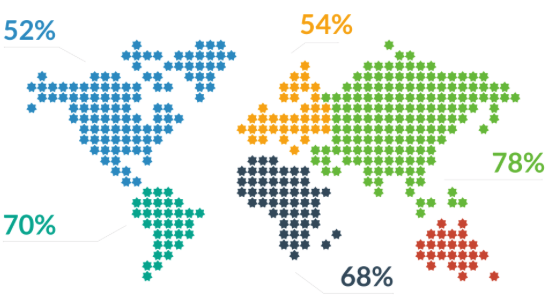This relationship is thus democratized, replacing a central authority with a community of peers. No one can unilaterally take actions on behalf of the community, manipulations and fraud becoming near to impossible. Based on the features of being trust-free and democratized, blockchain technology has enabled business transactions with strangers without the need for a trusted intermediary.
The Universal Sharing Network
During my research on technology in the open source domain, I came across the following project that is worth taking a closer look at: The German startup Slock.it has specialized in blockchain applications and promotes the Universal Sharing Network (USN). “66% of the world is willing to share their assets for financial gain,” they say and strive to create tomorrow’s Internet of value as an open source infrastructure on which blockchain applications modules can be deployed in order to share every unused asset from apartments to machines for a profit. They started out in 2016 as a small startup offering smart locks (slock) that could be paid, opened, and closed via blockchain-based smart contracts. A smart contract, a concept proposed in 1993, contains code functions and can interact with other contracts, make decisions, store data, and send it to others. Slock.it now focuses on the sharing economy and how it can benefit from trust-free blockchain technology. While the concept of the sharing economy is not a new phenomenon, one adjunctive problem – that of trust – could soon be outdated by using blockchain. Trust plays an important role in supporting both people and services to overcome perceptions of uncertainty and risk when sharing things. The user’s faith in the reliability of a sharing service denotes the subjectively felt security of the transactions, and therefore, is able to reinforce the system as such. In the end, a great behavioral change as expected by some researcher might not be necessary after all to establish a Universal Sharing Network, where everything is shared not owned.
Blockchain technology is said to be transparent and, as part of the open source universe, it is a dynamic player for future technological developments. It sounds like the perfect solution, and I cannot help but stumble over the phrase “trust-free” as describing an atmosphere that does not consist of any trust. However, the truth is, we will need a lot of trust in machines steered by artificial intelligence and well-written algorithms to make the Universal Sharing Network come true.
